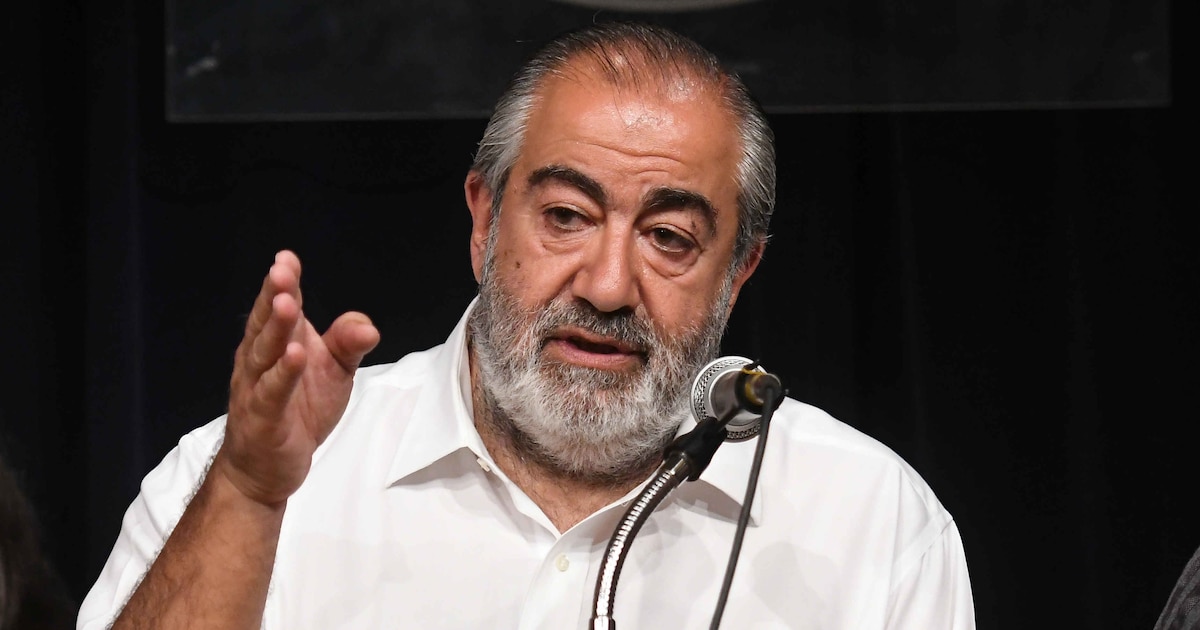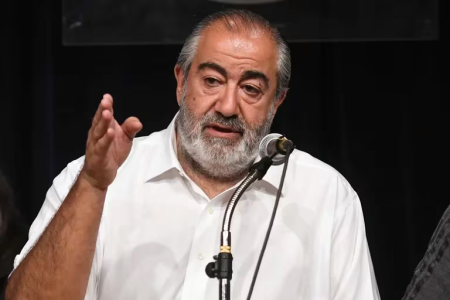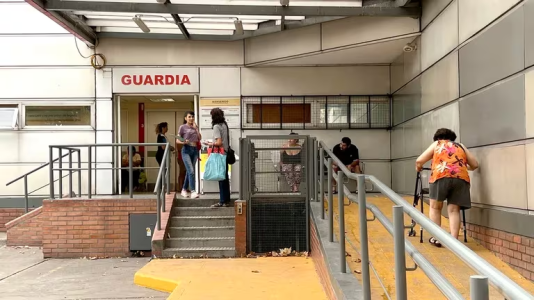Carlhunter
New member
The Health Union announced a 24-hour national strike on Thursday to demand wage increases-Infobae

Source:

 www.infobae.com
www.infobae.com
February 20, 2024
It was announced by the head of the union and one of the three general secretaries of the CGT, Héctor Daer. It involves nursing and support staff, excluding medical professionals. The leader criticized the “intransigence of the business chambers”

Héctor Daer announced a 24-day national health strike (photo Télam)
The head of the Health union and one of the three general secretaries of the CGT, Héctor Daer , announced a 24-hour national strike for next Thursday in demand of salary claims and in rejection of the "intransigence of the business chambers." The force measure applies to nursing and assistance personnel, excluding medical professionals.
The decision was announced by the union leader through a message published on the social network starting Thursday 02/22 . We will carry out all the necessary union actions for the salary recomposition of our Health colleagues. #sinsalarionohaysalud”, published Daer. The strike will affect activities in clinics and sanatoriums throughout the country that depend on the private sector, but essential services and guards will be maintained.
The force measure is part of a sequence of protests and force measures that CGT unions began to take in demand of salary increases. Starting this midnight, for example, the La Fraternidad strike should begin, which will affect the train service in the metropolitan area all day tomorrow.

The health force measure will have an impact on public and private health centers (photos Gastón Taylor)
The protest also occurs in a context of enormous tension between the national government and the CGT due to the social situation and a series of reforms promoted by the Presidency of Javier Milei that affects the labor unions, from a flexibility in labor relations to deregulation. of the union social works system.
But the most important thing is the impact that the adjustment and stabilization plan that was launched from the beginning of the current administration had on the economy, with the aim of stopping an inflationary escalation and ordering an economy dominated by imbalances, regulations and controls. . The draconian program impacted the level of activity and complicated the accounts of companies, which are limited in offering salary increases that they do not know if they will be able to finance.
A similar situation occurred in the Council of the Minimum Living and Mobile Wage (CSMVM), where the unions and employer representation did not reach an agreement, because the chambers avoided making an offer of increases in the face of the recession. This decision generated strong discomfort in the union representation - both the CGT and the two CTA - which demanded the intervention of the State and the signing of an award. The unions had asked for an 80% increase.
Meanwhile, the Government managed to get one of the unions of state workers that makes up the CGT to accept a 12% increase , which was rejected by ATE, which stressed that the increase is below the inflation rate and threatened to take measures force. The officials transmitted to the state representatives the proposal of the National Executive Branch to apply an increase of 12% for salaries corresponding to the month of February, which was added to the 16% that was agreed for January.
The offer was accepted by the Union of Civil Personnel of the Nation (UPCN), led by Andrés Rodríguez , but was strongly rejected by the Association of State Workers (ATE), headed by Rodolfo Aguiar . In the rest of the union arc, the sectors are also divided into intransigent and dialogueist positions. Part of the labor movement promotes a general strike due to the progressive deterioration of the quality of life of workers, and another part seeks spaces for negotiations to avoid a deepening of the crisis and that the reforms do not advance on acquired rights.

Source:

El sindicato de Sanidad anunció un paro nacional de 24 horas el jueves en reclamo de aumentos de salarios
Lo anunció el jefe de gremio y uno de los tres secretarios generales de la CGT, Héctor Daer. Involucra a personal de enfermería y de asistencia, excluidos los profesionales de la medicina. El dirigente criticó la “intransigencia de las cámaras empresariales”
February 20, 2024
It was announced by the head of the union and one of the three general secretaries of the CGT, Héctor Daer. It involves nursing and support staff, excluding medical professionals. The leader criticized the “intransigence of the business chambers”

Héctor Daer announced a 24-day national health strike (photo Télam)
The head of the Health union and one of the three general secretaries of the CGT, Héctor Daer , announced a 24-hour national strike for next Thursday in demand of salary claims and in rejection of the "intransigence of the business chambers." The force measure applies to nursing and assistance personnel, excluding medical professionals.
The decision was announced by the union leader through a message published on the social network starting Thursday 02/22 . We will carry out all the necessary union actions for the salary recomposition of our Health colleagues. #sinsalarionohaysalud”, published Daer. The strike will affect activities in clinics and sanatoriums throughout the country that depend on the private sector, but essential services and guards will be maintained.
The force measure is part of a sequence of protests and force measures that CGT unions began to take in demand of salary increases. Starting this midnight, for example, the La Fraternidad strike should begin, which will affect the train service in the metropolitan area all day tomorrow.

The health force measure will have an impact on public and private health centers (photos Gastón Taylor)
The protest also occurs in a context of enormous tension between the national government and the CGT due to the social situation and a series of reforms promoted by the Presidency of Javier Milei that affects the labor unions, from a flexibility in labor relations to deregulation. of the union social works system.
But the most important thing is the impact that the adjustment and stabilization plan that was launched from the beginning of the current administration had on the economy, with the aim of stopping an inflationary escalation and ordering an economy dominated by imbalances, regulations and controls. . The draconian program impacted the level of activity and complicated the accounts of companies, which are limited in offering salary increases that they do not know if they will be able to finance.
A similar situation occurred in the Council of the Minimum Living and Mobile Wage (CSMVM), where the unions and employer representation did not reach an agreement, because the chambers avoided making an offer of increases in the face of the recession. This decision generated strong discomfort in the union representation - both the CGT and the two CTA - which demanded the intervention of the State and the signing of an award. The unions had asked for an 80% increase.
Meanwhile, the Government managed to get one of the unions of state workers that makes up the CGT to accept a 12% increase , which was rejected by ATE, which stressed that the increase is below the inflation rate and threatened to take measures force. The officials transmitted to the state representatives the proposal of the National Executive Branch to apply an increase of 12% for salaries corresponding to the month of February, which was added to the 16% that was agreed for January.
The offer was accepted by the Union of Civil Personnel of the Nation (UPCN), led by Andrés Rodríguez , but was strongly rejected by the Association of State Workers (ATE), headed by Rodolfo Aguiar . In the rest of the union arc, the sectors are also divided into intransigent and dialogueist positions. Part of the labor movement promotes a general strike due to the progressive deterioration of the quality of life of workers, and another part seeks spaces for negotiations to avoid a deepening of the crisis and that the reforms do not advance on acquired rights.

